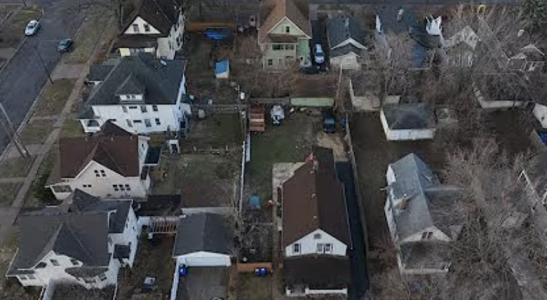Major housing program faces shutdown amid serious fraud concerns
By
Veronica E.
- Replies 0
A state-run housing program is making headlines this week, and not for the right reasons.
After years of offering vital support to older adults and people with disabilities, the program is now under intense scrutiny due to reports of widespread misuse and mismanagement.
Officials say changes are coming—but for families who rely on these services, the future feels uncertain.
While the Minnesota state promises to rebuild, thousands are left wondering what happens next.
Here’s what we know so far, what’s being investigated, and what it means for Minnesotans who depend on this program.

Minnesota’s Housing Stabilization Services (HSS) program was launched under the state’s Medical Assistance (Medicaid) system to help seniors and people with disabilities—including those managing mental health or substance use challenges—find and maintain safe, stable housing.
The services were designed to prevent homelessness and help individuals live independently, rather than in group homes or institutions.
In practice, the program provided case management, housing searches, and support for keeping up with rental responsibilities.
For many, it wasn’t just a benefit—it was a pathway to security and dignity.
Unfortunately, HSS also attracted fraudulent activity. The Minnesota Department of Human Services (DHS) and the Office of Inspector General (OIG) revealed what they described as “large-scale fraud” across the system.
The program’s original budget was just $2.6 million per year, but it ballooned to more than $100 million, much of it going to unqualified or dishonest providers.
In a letter to federal officials, DHS Temporary Commissioner Shereen Gandhi stated:
“We cannot allow one more cent of taxpayer money going out the door to providers who claim to serve Minnesotans in need of stable housing while lining their pockets for personal gain.”
Inspector General James Clark added that while the shutdown is difficult for those in need, it’s necessary to restore trust and protect the public.
While the current HSS program will be phased out, it is not ending overnight.
Here’s what affected families should know:
Critics say the problem goes beyond a few bad actors.
State Representative Kristin Robbins called the situation a “stunning admission” of just how broken the oversight process had become.
She and others argue that the program lacked proper controls from the start.
The numbers paint a troubling picture: an annual program expected to cost just a few million dollars ballooned into a $100 million-plus operation, with significant portions allegedly diverted to dishonest claims.
If you or someone you care for uses HSS services, here are a few steps to take:
Unfortunately, Minnesota isn’t alone.
Fraud has affected other social support systems across the country, from food assistance to Medicaid-funded caregiving programs.
These schemes waste taxpayer dollars and threaten the stability of programs designed to serve the most vulnerable.
For seniors, people with disabilities, and their caregivers, the HSS shutdown is a reminder that strong oversight and accountability aren’t just about money—they’re about trust and access to care.
DHS says it is committed to rebuilding the program with input from the community.
The new version is expected to include tougher vetting for providers, clearer rules, and stronger data tracking.
While the situation is frustrating, it may also be an opportunity to build something better—something that truly protects those it was meant to serve.
Read next: Massive scheme exposed—what officials say this means for your healthcare

If you or a loved one has used Housing Stabilization Services in Minnesota, we want to hear your story. What worked, what didn’t, and what would you like to see in a new version of the program?
Let’s make sure your voice is part of the conversation as the state works to rebuild trust and deliver real support.
After years of offering vital support to older adults and people with disabilities, the program is now under intense scrutiny due to reports of widespread misuse and mismanagement.
Officials say changes are coming—but for families who rely on these services, the future feels uncertain.
While the Minnesota state promises to rebuild, thousands are left wondering what happens next.
Here’s what we know so far, what’s being investigated, and what it means for Minnesotans who depend on this program.

Minnesota’s housing support program is under review as the state responds to widespread fraud and plans a full redesign. Image Source: YouTube / KARE 11.
What was the Housing Stabilization Services program?
Minnesota’s Housing Stabilization Services (HSS) program was launched under the state’s Medical Assistance (Medicaid) system to help seniors and people with disabilities—including those managing mental health or substance use challenges—find and maintain safe, stable housing.
The services were designed to prevent homelessness and help individuals live independently, rather than in group homes or institutions.
In practice, the program provided case management, housing searches, and support for keeping up with rental responsibilities.
For many, it wasn’t just a benefit—it was a pathway to security and dignity.
Also read: Former postal fraud investigator accused of stealing $330,000 from scam victims
What went wrong?
Unfortunately, HSS also attracted fraudulent activity. The Minnesota Department of Human Services (DHS) and the Office of Inspector General (OIG) revealed what they described as “large-scale fraud” across the system.
The program’s original budget was just $2.6 million per year, but it ballooned to more than $100 million, much of it going to unqualified or dishonest providers.
In a letter to federal officials, DHS Temporary Commissioner Shereen Gandhi stated:
“We cannot allow one more cent of taxpayer money going out the door to providers who claim to serve Minnesotans in need of stable housing while lining their pockets for personal gain.”
Inspector General James Clark added that while the shutdown is difficult for those in need, it’s necessary to restore trust and protect the public.
Also read: UnitedHealth under federal investigation—Civil fraud claims raise serious concerns
What happens now?
While the current HSS program will be phased out, it is not ending overnight.
Here’s what affected families should know:
- Services are still available for now. Approved providers can continue to offer support, and individuals can still apply for assistance.
- A new version is coming. DHS says it will collaborate with lawmakers, community organizations, and the federal government to redesign the program with stronger safeguards.
- Timeline unclear. There is no set launch date for the replacement program, and many families may experience delays or confusion during the transition.
Also read: Cancer-stricken senior targeted in alleged fraud; local woman faces charges
How did the fraud go unnoticed?
Critics say the problem goes beyond a few bad actors.
State Representative Kristin Robbins called the situation a “stunning admission” of just how broken the oversight process had become.
She and others argue that the program lacked proper controls from the start.
The numbers paint a troubling picture: an annual program expected to cost just a few million dollars ballooned into a $100 million-plus operation, with significant portions allegedly diverted to dishonest claims.
Also read: Protect your Social Security now: Insider tips from US government on handling suspected fraud
What should you do if you’re currently enrolled?
If you or someone you care for uses HSS services, here are a few steps to take:
- Stay in contact with your provider. Services haven’t stopped yet, so make sure you understand what’s still available.
- Check the DHS website. An FAQ page has been created to answer questions and post updates as the transition unfolds.
- Speak up. Let local legislators and community organizations know how important this service is to you. Your voice can help shape what comes next.
Also read: Elderly couple scammed out of $33K in roofing fraud—suspects in custody, but money still gone
A national problem with local impact
Unfortunately, Minnesota isn’t alone.
Fraud has affected other social support systems across the country, from food assistance to Medicaid-funded caregiving programs.
These schemes waste taxpayer dollars and threaten the stability of programs designed to serve the most vulnerable.
For seniors, people with disabilities, and their caregivers, the HSS shutdown is a reminder that strong oversight and accountability aren’t just about money—they’re about trust and access to care.
Also read: Woman admits to $5M Department of Education fraud scheme involving “straw students”
A path forward
DHS says it is committed to rebuilding the program with input from the community.
The new version is expected to include tougher vetting for providers, clearer rules, and stronger data tracking.
While the situation is frustrating, it may also be an opportunity to build something better—something that truly protects those it was meant to serve.
Read next: Massive scheme exposed—what officials say this means for your healthcare
Key Takeaways
- Minnesota is shutting down its Housing Stabilization Services program due to widespread fraud that inflated costs from $2.6 million to over $100 million annually.
- Officials say current services will continue temporarily, and eligible individuals can still apply while a redesigned program is developed.
- The Department of Human Services plans to work with lawmakers and the community to launch a more secure version with better oversight.
- Families relying on the program are encouraged to stay informed, communicate with providers, and advocate for stronger protections moving forward.
If you or a loved one has used Housing Stabilization Services in Minnesota, we want to hear your story. What worked, what didn’t, and what would you like to see in a new version of the program?
Let’s make sure your voice is part of the conversation as the state works to rebuild trust and deliver real support.






